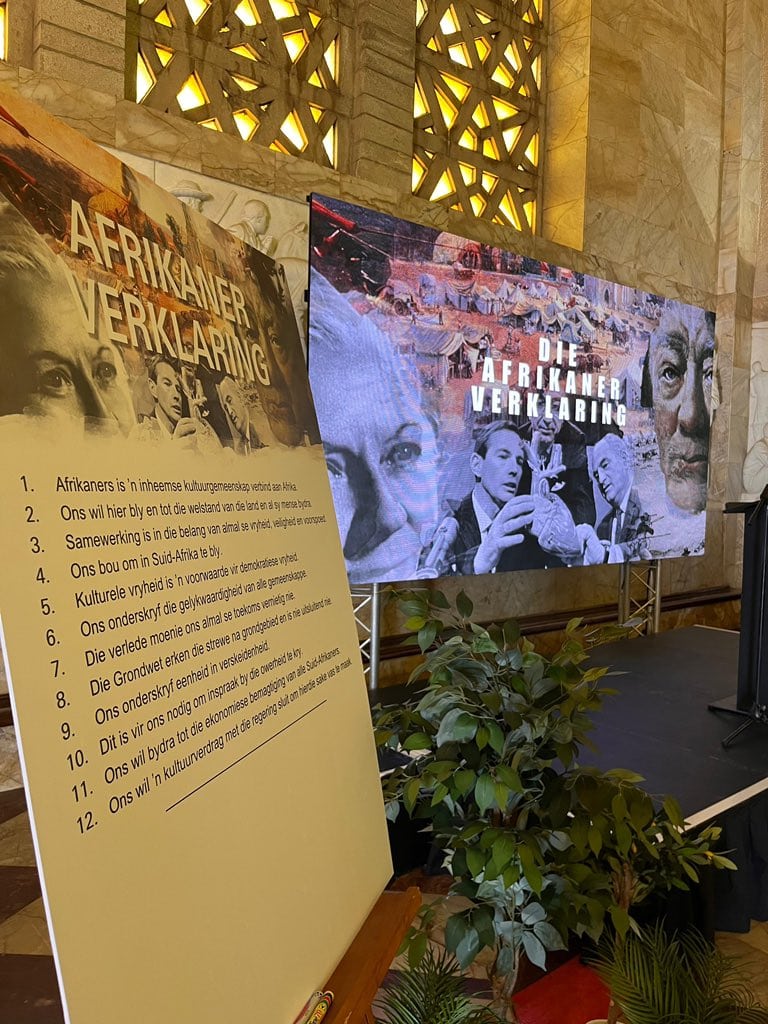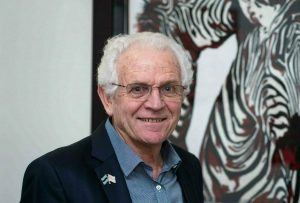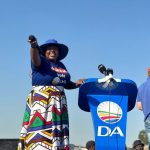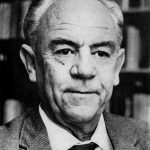It’s a debate that has been going on for a long time, but the time for it is probably riper now than before. This follows the publication of the Afrikaner declaration in which various Afrikaner organizations commit to stay in the country and help build a better future.
Now there is a real buzz among Afrikaners and (brown) Afrikaans speakers about what their relationship should be to each other. Is each a clearly distinguishable cultural group of its own, or do they belong together in one significantly larger minority group? According to Statistics South Africa, there are currently 3.4 million colored people who have Afrikaans as their home language and 2.7 million white people.
Afrikaans was given equal status as an official language along with the other ten languages. The principle is already contained in the interim Constitution drawn up during the Kodesa summit. The secretary of the summit was dr. Theuns Eloff who at that time was seen as an enlightened Afrikaner. The various parties agreed on a model of majority government with guarantees for minorities. Right-wing Afrikaners, such as the miners’ union (later its name was changed to Solidarity), wanted a system of devolution with a confederal government structure.
About four years ago, former president FW de Klerk made the statement publicly that apartheid cannot be labeled as a sin against humanity. This caused consternation and the FW de Klerk Foundation retracted the statement. It was done by dr. Theuns Eloff, who then headed the institution. At the same time, a group of prominent white Afrikaans speakers distanced themselves from De Klerk’s statements in a statement and committed themselves to cooperation and reconciliation with everyone in the country.
After many informal meetings, it was decided to connect a network of South Africans, who are doing positive things in their own right. It is an attempt to bring about greater action in civil society for the better through dialogue. The initiative was initially taken by mainly African white, elderly men led by Barend la Grange. In mid-April, two large meetings were held – in Johannesburg and in the Cape. More than 100 people of all colors, ages and genders attended.
At the same time, a group of Afrikaner institutions met – facilitated by dr. Eloff. They announced that after the election on 29 May they want to enter into a cultural pact with the new government. In a declaration of 12 points, they promise to help rebuild the country, but then they expect cultural freedom from the government.
One of the first high-profile people to criticize the initiative was Christo van der Rheede – a “brown man” who has made deep inroads into “Afrikaner” institutions such as AgriSA and the Afrikaans Trade Institute. Ironically, he is also the newly appointed CEO of the FW de Klerk Foundation, succeeding Theuns Eloff in the post.
I then invite Theuns, Christo and Barend to participate in a Zoom conversation.

Christo’s argument was that Eloff’s group only created new alienation. The term “Afrikaner” is being hijacked anew for narrow nationalist goals. The entire Afrikaans community’s contribution to the reconstruction of the country must be used. But with the Afrikaner declaration, the colored Afrikaans community was excluded.
Eloff was somewhat annoyed and pointed out that the Constitution provides for freedom of association. After the election, an attempt will be made to negotiate a cultural pact with the new coalition government. The government must accept that the Afrikaner has a much broader understanding of culture. For example that it includes land. Eloff says the Constitution recognizes the pursuit of land and that cultural freedom without territory is without lands.
Barend emphasized how civil society must come together to create a joint future.
Finally, I just want to make a few points.
It’s a shame that an initiative with a bunch of good principles is embroiled in controversy right from the start. Principles such as cooperation in the interests of freedom, security and prosperity; equality and economic empowerment.
In particular, work will have to be done on the relationship between the Afrikaans communities. However it is structured, we simply cannot afford for the majority of co-culture and language partners to feel ostracized. In my experience of years of traveling all over the country, I have made a job of telling human stories, especially of colored communities. Each time I was amazed at the goodwill when a person gives but the smallest sign of recognition of human dignity and equality.
In the brown community, there is a tremendous sensitivity about especially the Afrikaner’s handling of discrimination. This despite the fact that our forefathers all participated in the development of our unique mixed language on this soil. We are not distant relatives… we are brother and sister – sometimes literally so.
What and how will all the matters be dealt with in the cultural treaty?
Who sets it up?
Who recites it?
The perception is that the Afrikaner declaration is really just a Solidarity declaration. More than half of the participating organizations come from the stable of the Solidarity Movement – such as the trade union Solidarity, AfriForum, Helpende Hand, Akademia, Sol-Tech and several others. Over the past 30 years, the Movement has grown to become the strongest and most versatile civic organization in the country. He probably has no equal internationally.
Leaders like Flip Buys, Dirk Hermann, Kallie Kriel and Gerrie Nel are not afraid of the devil. They do first and then speak. Court case after court case, they gained the reputation as a formidable opponent. Initially, the government and parties like the EFF dismissed them as reactionary, right-wing racists who only serve white Afrikaners. As their success grew, more and more black people called on them for help.
One thing is certain: any initiative to promote Afrikaner/ Afrikaans language/ culture will not be possible without Solidarity. It will only take delicate conversation to ensure that the best strategy can be found to serve the cause.
Also: How does lawyer Willie Spies’ Afrikaner blueprint fit into the picture?
And Orania?
I hope sensible solutions will be found in good spirit.








